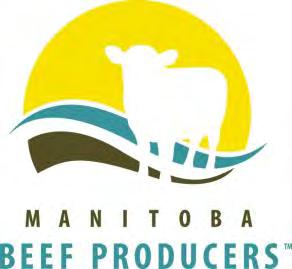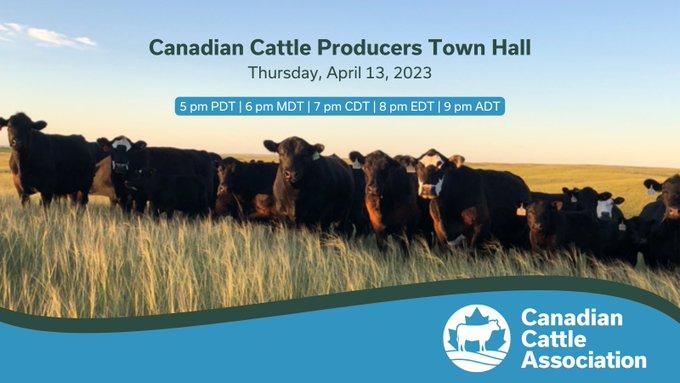dsfsfa


Important Reminders: 2022 Spring Flood and Mandatory Documents Required for Farm Claims Under the Disaster Financial Assistance (DFA) Program
The following information has been provided by the provincial government.

Manitoba Emergency Measures Organization (EMO) continues to evaluate farm applications under the Spring 2022 Disaster Financial Assistance (DFA) program.

To process DFA claims, EMO requires certain documents from applicants to ensure the integrity of our program and to ensure that funds are being spent appropriately. Manitoba also shares the costs of disasters with the Government of Canada, and Manitoba must demonstrate to the federal government that we have verified that assistance payments are only made for eligible items. We thank you in advance for your cooperation in providing these important documents.
EMO has prepared a video on the mandatory documents and DFA for Farms. It is available at: https://www.gov.mb.ca/emo/dfa/videofarmdfa.mp4
If you have not already, please provide the following in support of your DFA claim as soon as possible so that we can proceed to evaluate your claim and provide assistance:
• The most recent property tax bill for your property to confirm the property value and property ownership of all affected parcels of land and structures.

• For claims with damage to rented land where repairs are delegated by the landowner to the tenant, the Land Owner's Authorization must be completed and signed by the landowner.


• A copy of the insurance declaration form, completed by your insurance broker


• A signed, original copy of the Financial Assistance Application. The names on this document must match the names on the property tax bill. Saturday, April 8 at 6:30pm
Continued on page 3
E-Newsletter
An update from MBP April 6, 2023 mbbeef.ca
Canada, Manitoba Sign Agreement to Grow Manitoba's Agriculture and Agri-Foods Sector Over Five Years
(April 6, 2023 Joint Federal/Provincial Government News Release) Today, federal Agriculture and AgriFood Minister Marie-Claude Bibeau and Manitoba Agriculture Minister Derek Johnson announced $221 million for strategic agricultural initiatives in Manitoba under the new the Sustainable Canadian Agricultural Partnership (Sustainable CAP).
The Sustainable CAP is a five-year, $3.5-billion investment by Canada's federal, provincial and territorial governments that supports Canada's agrifood and agri-products sectors. This includes $1 billion in federal programs and activities and a $2.5 billion commitment that is cost-shared 60 per cent federally and 40 per cent provincially/territorially for programs that are designed and delivered by provinces and territories.
The Manitoba government has launched a suite of programs under the Sustainable CAP framework that will help the sector reach its full potential by expanding business opportunities, investing in sustainable practices throughout the sector, and strengthening resiliency of the entire food chain. These programs were developed through significant consultation with industry partners, who highlighted a number of priority areas, including research, innovation and market development, emergency preparedness and technology advancement.
For example, the new Resilient Agricultural Landscape Program has been developed based on feedback from the industry, and supports ecological goods and services by funding on-farm projects that remove carbon (or carbon dioxide) from the atmosphere to reduce greenhouse gas emissions. Eligible applicants include community pastures, agricultural Crown land forage lease-holders, First Nations and Métis communities and farmers outside of watershed district boundaries.
Canadian producers also have access to an enhanced suite of business risk management programs to help them manage significant risks that threaten the viability of their farms and are beyond their capacity to manage. The Sustainable CAP comes into effect April 1, and replaces the Canadian Agricultural Partnership.
Quotes
"The Sustainable CAP is a commitment by the governments of Canada and Manitoba to continue investing in the agriculture sector’s growth and innovation, ensuring producers, ranchers and processors reach their full potential and have access to new markets for their products. Building a resilient and productive sector in Manitoba will help Canada remain a world leader in sustainable agriculture.” — The Honourable Marie-Claude Bibeau, Minister of Agriculture and Agri-Food
“Manitoba producers and agri-processors are key contributors not only to Manitoba’s economy, but to the entire international agri-food value chain. Our government is committed to supporting this industry through targeted programming while they work to sustainably feed the world, right here at home. I want to thank our industry stakeholders for their input in consultations over the last two years so we could create programs that fit exactly what Manitoba producers need. I look forward to future investments that will support Manitoba agricultural operations.”
— Manitoba Agriculture Minister Derek Johnson
Quick Facts
• The Sustainable CAP initiative will deliver programs that support a number of priority areas, including:
o building sector capacity, growth and competitiveness;
o climate change and environment;
o science, research and innovation;
o market development and trade; and
o resiliency and public trust.
• On March 6, the Government of Canada announced that applications are now being accepted for federal programs under the Sustainable CAP that will go into effect on April 1.
• The Sustainable CAP replaces the previous framework, the Canadian Agricultural Partnership, which resulted in significant investments and growth in Manitoba’s agriculture and agri-food sector.
• The new Sustainable CAP agreement has a 25 per cent funding increase over the previous agreement.
Associated Links https://www.manitoba.ca/scap/
2022 Spring Flood – cont. from
• Tax information (send copies of all that apply to you):
o For a farm that is a sole proprietorship, a complete copy of the most recent T1 General income tax return or notarized proof of income and Statements of Income and Expense.
o For a farm that is a partnership, a complete copy of your partnership agreement and a complete copy of the most recent T1 General income tax return.
o For a farm that is a limited company, a complete copy of your articles of incorporation, a complete copy of the most recent general income tax return and statements of income and expenses.
• Veterinary Certificate completed and signed for verification of livestock loss.
With respect to repairs, the provincial government reminds applicants of the importance of having complete documentation, including:
• Take pictures of the damages before and after repairs
page 1
• Keep a log of the labour and equipment hours they spend on clean up and repairs
o Provide details on types of equipment used
o Fuel used
o Nature of labour and hours
• Keep records of any materials used to complete repairs (invoices and proof of payment)
You can email the required documents to dfa@gov.mb.ca; please ensure you quote your DFA claim number in the email.
Program deadline
November 15, 2023: Program Closure Deadline
– DFA is working with all claimants so that repairs can be completed and required documents submitted to Manitoba EMO no later than November 15, 2023.
Manitoba EMO – DFA
Toll Free: 1-888-267-8298
Fax: (204) 945-4929
1525 - 405 Broadway
Winnipeg MB R3C 3L6
https://www.gov.mb.ca/emo/dfa/farm.html

Mark your calendars! Join the Canadian Cattle Association next Thursday for a Canadian Cattle Producers Town Hall featuring a Canadian weather outlook by Matt Makens and Canadian Cattle Association updates on policy priorities and activities. French interpretation will be available. Register today: http://bit.ly/43a9JIT


Canadian Agricultural Human Resources Council (CAHRC) to survey ag industry to evaluate post-pandemic labour market situation
April 3, 2023 CAHRC News Release, Ottawa, ON – The Canadian agriculture industry has been greatly affected by the COVID-19 pandemic, and one of the most pressing issues that it faces today is the availability of skilled labour. In light of this, the Canadian Agricultural Human Resources Council (CAHRC) is launching a survey to evaluate the postpandemic labour market situation in the industry. It will also be a reference point to the data that CAHRC has been gathering for almost a decade.
The COVID-19 pandemic exacerbated existing issues, such as labour shortages and other challenges, and it is crucial to understand the current market situation and the impact of the pandemic on the industry’s workforce. This much-anticipated update to the previous LMI study completed in 2018 will collect valuable insights from primary producers, provincial governments, agricultural industry associations, commodity groups, and other stakeholders in the agriculture industry to identify challenges, and explore potential solutions. CAHRC will obtain an updated overview of the current agricultural labour market that will inform the labour supply and demand forecasts.
“The Canadian agriculture industry has been experiencing a growing labour shortage that is turning to a labour crisis. The update to this research will provide a measurement of what that labour shortage is currently and forecast what the future holds,” said Jennifer Wright, CAHRC’s Executive Director. “This data is often used to inform policy, funding, training and education programs and labour market information assessments. The more participation we have in this survey the better
the data will be.”
In this constantly changing economic environment, research is so important and current data is critical to help clarify labour shortage issues. By better understanding how workforce needs have changed, the agricultural industry can present the new research to policy makers to guide future action on the growing workforce crisis. In this effort, CAHRC will be surveying a minimum of 800 Canadian farm owner-operators, agricultural workers and supporting stakeholder groups. With the direct input of these various groups, they will have an opportunity to provide valuable input to guide future action on labour shortages. We urge all owner-operators, agricultural workers and supporting stakeholder groups to take part in the surveys that will be open until April 30, 2023.
New to CAHRC’s labour market research, this update will investigate opportunities and barriers to participation among groups in Canada's population that have traditionally been under-represented in the agricultural workforce such as Indigenous peoples, new Canadians, women, youth and older workers. The industries in this study will also expand to include agriculture retail, cannabis production and organic production.
The Council has led numerous labour market information projects that have provided meaningful data and tools to further the needs of the agriculture industry. The full research report Understanding the Effects of COVID-19 on Canada’s Agriculture Workforce is available at https://cahrcccrha.ca/programs/agrilmi.
Update on Restriction on Winter Application of Nutrients
Provincial legislation prohibits the application of nitrogen and phosphorus between and including November 10 of one year and April 10 of the following year. Nutrient sources containing nitrogen and/or phosphorus include synthetic fertilizer and livestock manure. The winter spreading restrictions are in place as the application of nutrients onto frozen or snow-covered soils results in an increased risk of nutrient runoff. Nutrient runoff to waterways contributes directly to algal blooms in Lake Winnipeg and elsewhere.
However, there may be some years where weather conditions are such that agricultural land can reasonably be worked to apply nutrients between November 10 of one year and April 10 of the following year for crop uptake while still protecting water quality In these cases, a provincial or regional variance may be issued. This is not the situation this year No provincial variance is in effect. Nutrients cannot be applied before April 11, 2023. This is due to the expectation of snow cover, frozen soils and below freezing temperatures.
Provincial/Regional Variances
Provincial legislation (Nutrient Management Regulation (M.R. 62/2008) and the Livestock Manure and Mortalities Management Regulation (M.R. 42/98)) authorizes the director to vary these dates if conditions are such that soils remain thawed and are not snow covered on or after November 10 providing nutrients can reasonably be worked into the soil for crop uptake or if soils thaw earlier than April 10 in the spring.

The most current information on the Restriction on Nutrient Application dates can be found at manitoba.ca/nutrientdates under the Restriction on Winter Application accordion and a link to the policy for varying the dates can be found there as well.












